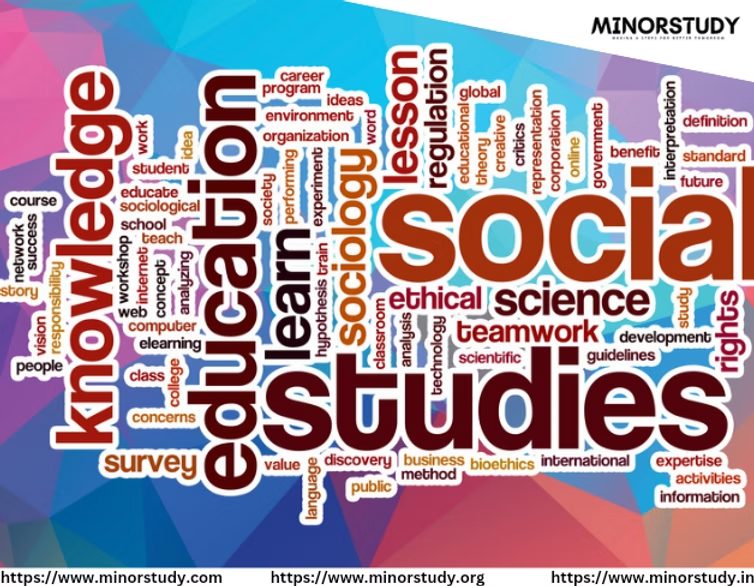Canadian Studies (BA)
Faculty: Arts and Social Sciences Type: Bachelor Program Options: Combined degree, Honours, Major, Minor
The Canadian Studies (BA) program is designed to provide students with a deep understanding of Canada’s history, culture, society, and political landscape. This interdisciplinary program combines elements of history, geography, political science, economics, and cultural studies, with a focus on both contemporary and historical aspects of Canadian life. Students gain the analytical skills necessary to critically examine issues such as national identity, indigenous rights, immigration, and Canada’s role in the global community.
Key Learning Outcomes
Understanding Canadian History and Culture: Students will explore the historical development of Canada, from indigenous cultures to the colonial period, Confederation, and modern-day challenges.
Political and Social Awareness: Gain insight into Canada’s political systems, institutions, governance, and public policy, as well as social issues such as multiculturalism, the environment, and Indigenous rights.
Interdisciplinary Research Skills: Develop the ability to engage in interdisciplinary research across history, geography, sociology, economics, and political science to understand Canadian society from multiple perspectives.
Global Perspective: Understand Canada’s position in the world, including its international relations, economic ties, and contributions to global issues.
Critical Thinking and Analysis: Learn to think critically about Canadian issues, drawing from various academic disciplines to engage in meaningful discussions and produce insightful analyses.
Core Curriculum
The Canadian Studies (BA) program typically combines core courses in Canadian history, politics, culture, and geography, with electives that allow students to explore specialized topics.
Foundational Courses
Introduction to Canadian Studies
An overview of the study of Canada, covering major historical, cultural, and political developments.
Canadian History
A detailed examination of Canada’s history, focusing on significant events, figures, and movements from pre-contact to modern times.
Canadian Politics and Government
An introduction to Canada’s political institutions, political parties, federalism, and the role of government in Canadian society.
Geography of Canada
Exploration of Canada’s physical and human geography, including the country’s landscapes, demographics, and regional differences.
Intermediate Courses
Indigenous Peoples in Canada
Study of the history, culture, and contemporary issues of Indigenous peoples in Canada, including colonialism, the Indian Act, and reconciliation.
Canada and Globalization
Analysis of Canada’s role in the global economy, its foreign policy, and its international relationships.
Social Issues in Canada
Examination of key social issues, such as immigration, multiculturalism, poverty, healthcare, and environmental challenges in Canada.
Canadian Literature and Arts
Study of Canadian literature, arts, and media, with a focus on how cultural production reflects and shapes Canadian identity.
Advanced Courses
Canadian Political Economy
Analysis of Canada’s economic system, the role of government in economic policy, and the relationship between business, labor, and the state.
Quebec Studies
Focus on the history, language, culture, and politics of Quebec, including the province’s unique position within Canada.
Canadian Foreign Policy
Examination of Canada’s diplomatic history and international relations, including its role in global peacekeeping, trade agreements, and alliances.
Environmental Issues in Canada
Exploration of environmental challenges and policies in Canada, such as climate change, resource management, and conservation.
Capstone Project or Internship (optional)
A final research project or internship that allows students to apply their academic knowledge to real-world Canadian issues, either through community involvement, research, or policy analysis.
Skills Acquired
Research and Analytical Skills: Ability to conduct interdisciplinary research and analyze complex Canadian issues from multiple perspectives.
Communication Skills: Proficiency in writing, presenting, and discussing ideas clearly, both orally and in written form.
Critical Thinking: Ability to critically assess Canadian political, social, and historical issues, questioning assumptions and considering alternative viewpoints.
Cultural Awareness: Understanding of Canada’s diverse cultural, social, and political fabric, including Indigenous perspectives, multiculturalism, and regional identities.
Global Perspective: Knowledge of Canada’s role in global issues and its interactions with other nations, particularly in areas such as trade, diplomacy, and peacekeeping.
Program Options
Combined Degree
Allows students to pursue Canadian Studies alongside another major (e.g., Political Science, History, Sociology), providing a broader interdisciplinary education.
Honours
A more in-depth program that typically includes a thesis or a major research project. The Honours option is suited for students interested in pursuing graduate studies or specialized research in Canadian Studies.
Major
A focused program that allows students to study Canadian Studies in depth while also taking electives in other fields. The Major provides solid academic grounding for a range of career paths.
Minor
A supplementary program that provides a strong understanding of Canadian Studies to complement a primary field of study. The Minor is ideal for students pursuing other majors but who wish to gain knowledge of Canada’s political, historical, and cultural landscape.
Career Opportunities
Graduates of the Canadian Studies (BA) program can pursue various career paths in both the public and private sectors. Some potential careers include:
Public Policy Analyst
Researching and advising on government policies, particularly those affecting Canadian society, economics, and international relations.
Cultural Analyst or Consultant
Working with organizations, museums, or cultural institutions to analyze and interpret Canadian culture and history.
Indigenous Rights Advocate
Working for Indigenous organizations, NGOs, or government bodies to support the rights and welfare of Indigenous peoples in Canada.
Government and Public Service
Pursuing careers in federal, provincial, or municipal government in roles such as policy development, communications, or public administration.
Journalism and Media
Reporting on Canadian politics, culture, and social issues for news outlets, magazines, and other media.
International Relations Specialist
Working in diplomatic or international organizations to manage Canada’s foreign relations and global partnerships.
Community Development Officer
Working with local governments or NGOs to address social, economic, and environmental challenges within Canadian communities.
Why Choose This Program?
Interdisciplinary Approach: The program combines knowledge from history, politics, culture, and economics, providing students with a comprehensive understanding of Canada.
Diverse Career Paths: The program equips students for a wide range of careers in government, business, non-profits, education, and media.
Focus on Canadian Identity: Students will critically explore the forces that shape Canada’s national identity, including Indigenous rights, multiculturalism, and environmental challenges.
Research and Practical Experience: The opportunity to engage in research projects and internships provides students with real-world experience and prepares them for further academic study or professional careers.
Conclusion
The Canadian Studies (BA) program provides students with a deep and broad understanding of Canada’s history, culture, and society. By combining interdisciplinary study with practical research, this program prepares graduates to address critical issues in Canadian politics, economy, and social life, and equips them for a wide range of professional opportunities. Whether pursuing a career in government, business, education, or the non-profit sector, a background in Canadian Studies offers valuable insights into the nation’s complex identity and challenges.








